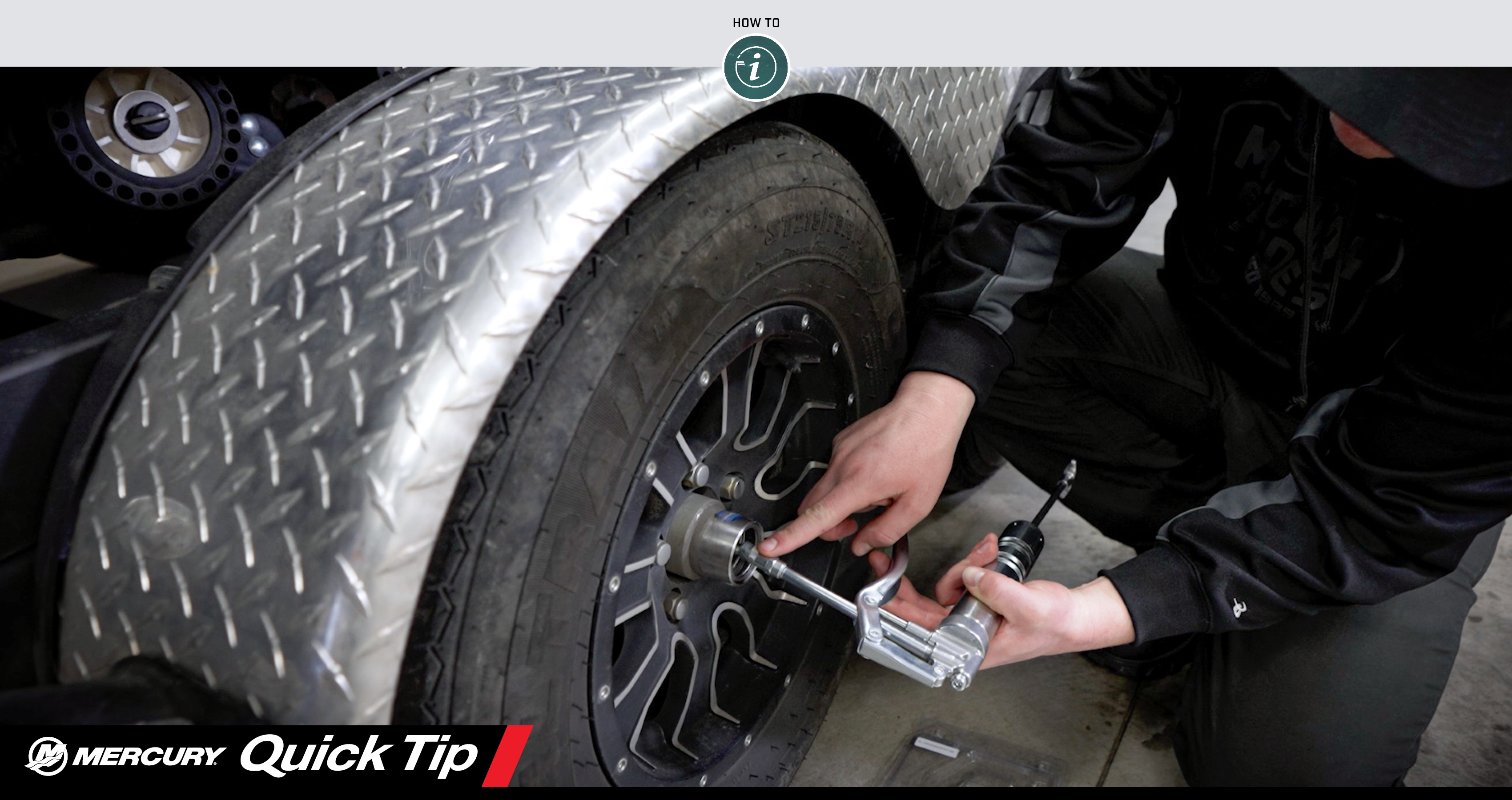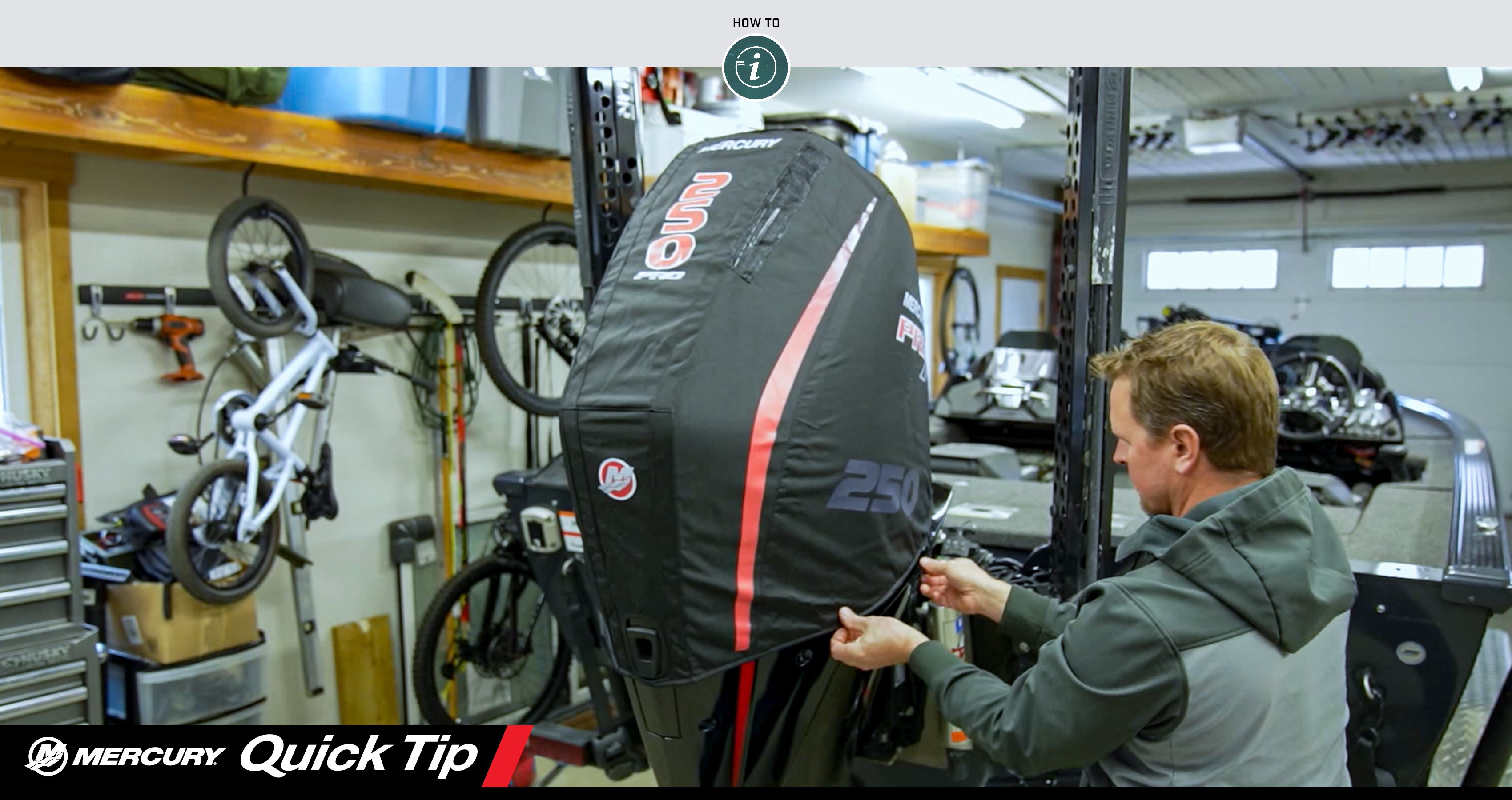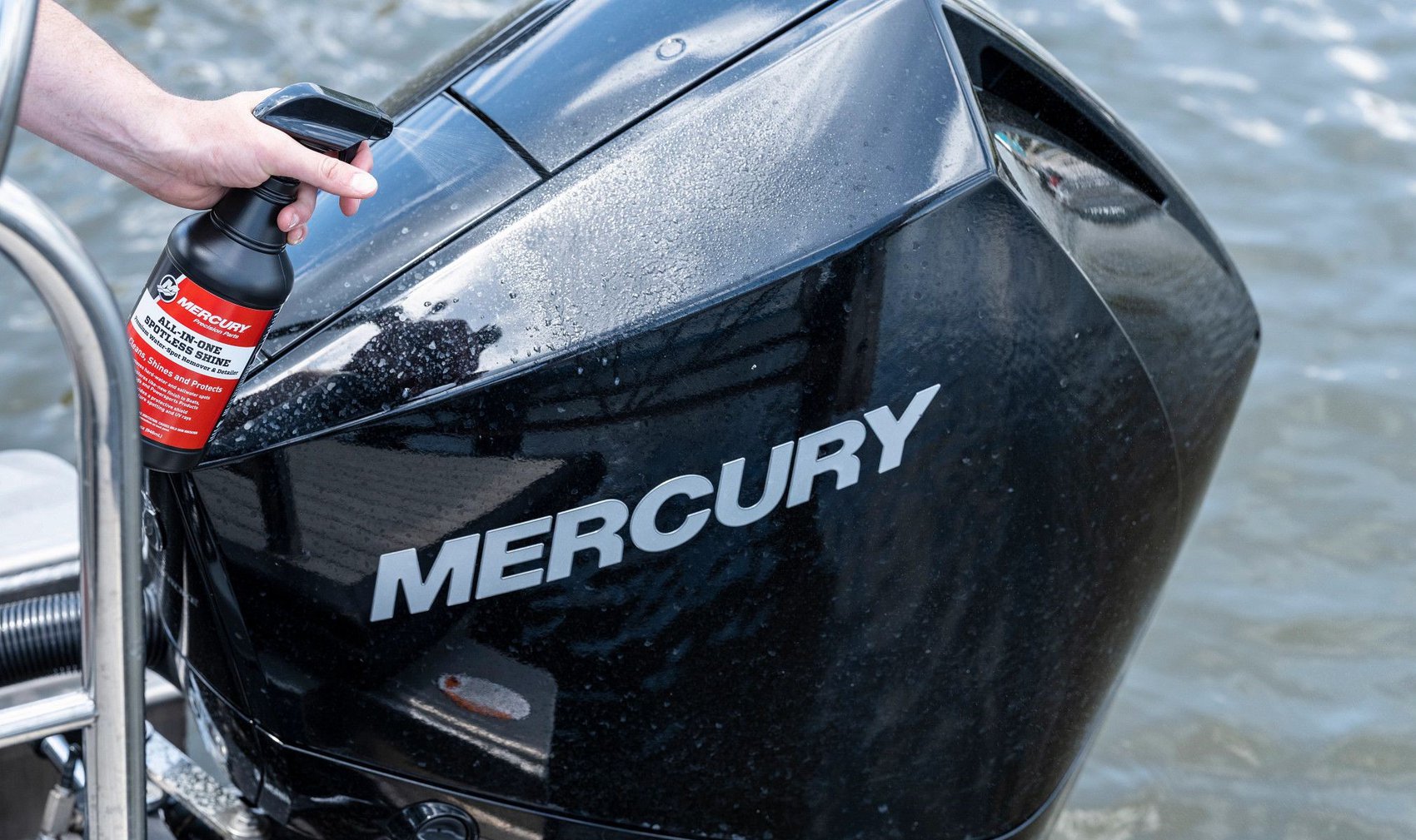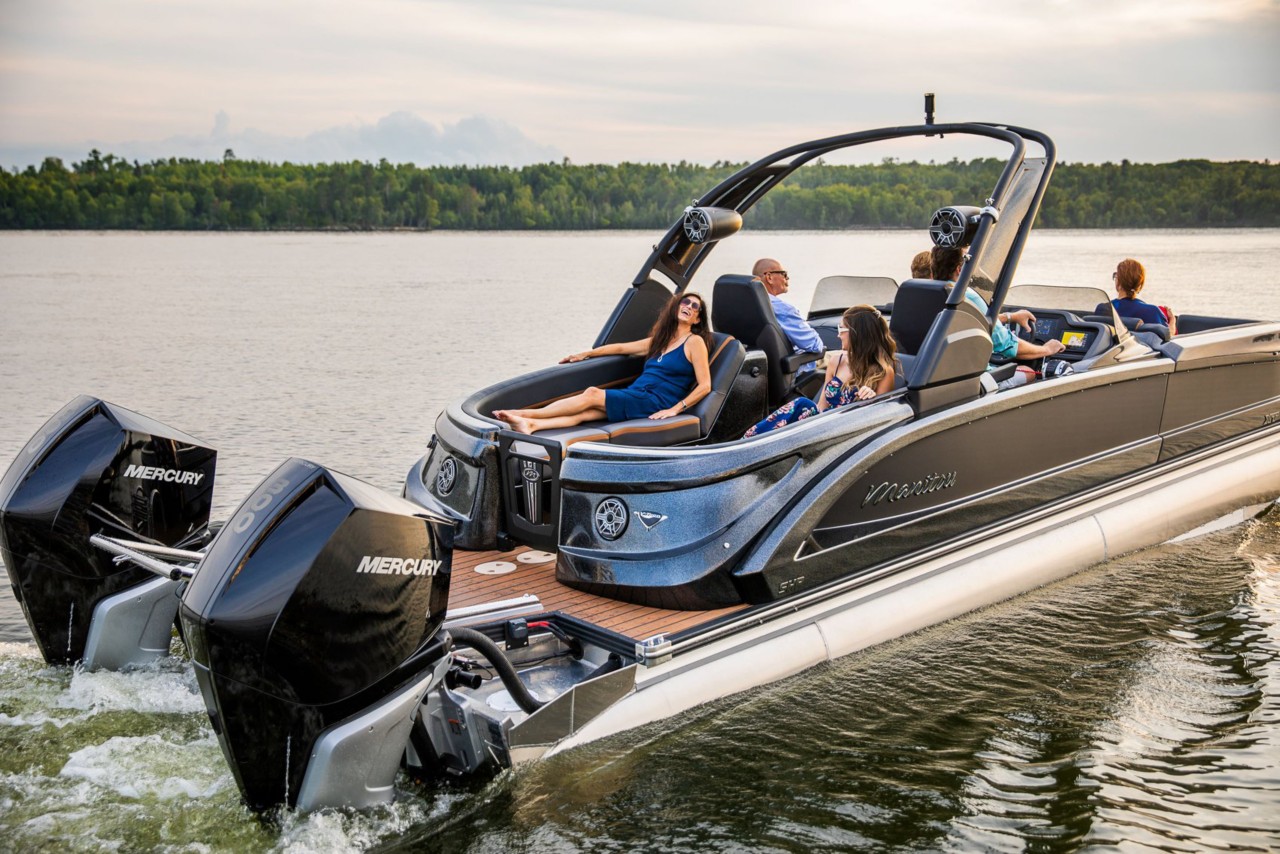In the upper echelons of the pontoon boat market, owners can be more demanding, but also a bit less price sensitive. That gives manufacturers of luxury pontoons ample budget to outfit their vessels with upgraded performance features and amenities.
What does that entail? We asked a group of pontoon boat industry experts to weigh in.
First, the experts agree that luxury pontoons don’t look like typical pontoon boats. They tend to be sleeker, often sporting automotive-inspired styling. They are more curvaceous, especially aft – a look that manufacturers achieve by utilizing fiberglass in addition to aluminum when shaping the boat’s exterior.
“To me, it starts with the exterior appearance and how it needs to be a departure from the traditional wall-and-rail system that you see on almost every pontoon that exists,” said Manitou® Global Product Manager Garrett Koschak. “If it doesn’t have that traditional squared-off, four-corner pontoon boat look, that’s kind of the first step.”
Luxury pontoons also deliver higher performance than lower-end models. Almost universally, they are built with triple pontoons rather than the usual dual pontoons – a stable, rugged hull configuration capable of accommodating higher-horsepower outboards. It’s not uncommon to see twin outboards on one of these top-of-the-line pontoon boats. Some even are offered with twin Mercury Racing 450R engines.
“The luxury pontoon trend started with innovations like the ‘triple-toon,’ fiberglass exteriors and glass dashes,” said Harris and Cypress Cay Pontoons Director of Marketing Shelley Nelson, “but adding the third pontoon with new performance packages was a game-changer for pontoon maneuverability. Higher-horsepower options matched with these innovations led the charge on a new segment of luxury pontoons.”
The need for more power matches with most customers’ desire for an even greater boating experience.
“The vast majority of twin-engine pontoons we sell are our most luxurious models,” said Avalon and Tahoe Pontoons Director of Marketing Greg Knight. For those customers, he continued, “It just follows logic that they are going to buy the best boat we make.”
Another key differentiator of the luxury pontoon is its interior. Designed with rigorous attention to detail, these boats’ furnishings are on par with those you might see in a high-end RV, or even some homes. They are covered with fabrics that look luxe and feel soft while also being comfortable and easy to clean.
“What really stands out and makes something a luxury pontoon, in my opinion, is the interior,” said Barletta Boats Vice President of Sales Jeff Haradine. “When we go to the luxury end of the spectrum in pontoons, high-end furniture, high-end materials and high-end appointments are expected.”
“Typically, a luxury pontoon involves the ultra-fine materials, super-soft vinyl and incredibly comfortable furniture,” said Smoker Craft and Sylvan Marine Senior Vice President for Marketing-Corporate Development Peter Barrett.
The layout of luxury pontoons also departs from standard arrangements and includes upscale features such as raised helms, dual captain chairs, convertible sunbeds, changing rooms and large watersports platforms.
“It’s all in the boat features, styling and finishes,” added Nelson. “Stylish seating, like Harris’ loungers, compare to having luxury furniture in your house, but are immensely durable in the marine environment.”
Another defining characteristic of a luxury pontoon is its collection of helm electronics, sound and lighting. These boats are loaded with premium equipment, including navigation suites with large multi-function screens, interior and underwater LCD lighting featuring programmable colors, and sophisticated stereo systems with big, high-end speakers.
“Comfort, performance and technology are three really important components of the luxury pontoon,” Barrett said.
“Connectivity, from a feature perspective, is No. 1,” added Koschak, referring to the new digital technology that allows owners to monitor and manage the boat’s engine, bilge alerts, electrical system, lighting and more from the helm. “Anything that is beyond what is considered analog is where you really start to separate yourself into that luxury category."
In short, the biggest difference between a luxury pontoon and an “ordinary” one is the ability to have the exact look, feel, sound and performance that you demand for a better boating experience.




